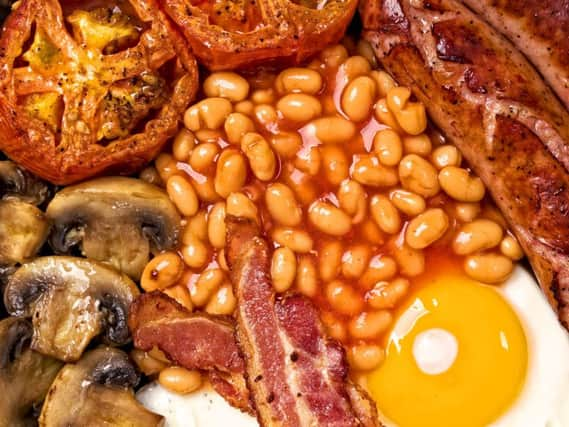How to reduce ‘silent killer’ of cholesterol


It’s known as the ‘silent killer’ for good reason.
The symptoms for high cholesterol are hard to pinpoint, meaning a heart attack could be the first sign something is wrong. And because more than half of UK adults have raised levels, according to charity Heart UK, this is an enormous health issue.
If you’re unsure what cholesterol is, it’s a waxy, fatty substance, mainly made in the liver - but can also be found in certain foods.
Advertisement
Hide AdAdvertisement
Hide AdThere’s both ‘good’ and ‘bad’ cholesterol. The appropriately named ‘good cholesterol’ (high density lipoprotein cholesterol, or HDL) protects your body by removing excess cholesterol from your blood to your liver, where it is removed from your body. It also supports the membranes in cells. But high levels of ‘bad cholesterol’, or to give it its full name, low-density lipoprotein (LDL), can collect in the walls of your blood vessels, causing blockages and narrowing your artery walls. This can put you at greater risk of cardiovascular problems, including heart disease and stroke.
HOW CAN I GET TESTED?
A blood test can measure your levels of good and bad cholesterol. Your GP might suggest a test if you’re diabetic, have high blood pressure, if you’ve had heart disease, a stroke, family history of heart disease or a cholesterol-related illness (Familial Hypercholesterolaemia).
LIFESTYLE
Lifestyle factors play a big part. Smoking, an unhealthy diet and a lack of physical activity can lead to higher levels of bad cholesterol.
Experts suggest cutting down on the amount of fatty food you eat (so opt for leaner cuts of meat, grill rather than fry and limit your biscuit and cake intake), including more fruit and veg in your diet, taking regular exercise and giving up smoking. Your doctor might also suggest taking statins to lower your cholesterol levels. And it can help to know your family’s medical history too.
DANGER SIGNS
The problem is that there are no obvious symptoms for high cholesterol. In some cases, pain on walking can flag up high cholesterol as it may be caused by a blockage to an artery that feeds the big muscles. But often, it’s a stroke or heart attack that reveals something is awry.
6 CHOLESTEROL-BUSTING FOODS
Add some of these to your daily diet to help lower your cholesterol, suggests the cholesterol charity Heart UK:
• Soya foods: Naturally low in saturated fat, studies show that as little as 15g of soya protein a day, found in things like edamame beans, tofu and soya milk, can lower your cholesterol by around 6%.
• Nuts: A handful of nuts (30-35g) a day could lower your cholesterol by an average of 5%.• Oats and barley: These grains are rich in beta glucan, a form of soluble fibre, which prevents cholesterol from being absorbed in the intestines.
Advertisement
Hide AdAdvertisement
Hide Ad• Seeds: These are a natural source of cholesterol-lowering plant sterols and stanols, which are also found in fruits and vegetables, vegetable oils, nuts and whole grains.
• Fruit and vegetables: Low in saturated fat, they’re also a source of cholesterol-lowering soluble fibres. Try to eat at least one pulse (beans, peas, lentils) each day, as well as sweet potato, aubergine, okra, broccoli, apples, strawberry and prunes, also rich sources of soluble fibre.
• Unsaturated fats: We need to avoid saturated fat where possible, staying below 20g per day for women and 30g for men. But it’s important to replace it with unsaturated fats, which can be found in vegetable, nut and seed oils, avocado, oily fish and nuts.
• For more information, visit heartuk.org.uk and www.bhf.org.uk